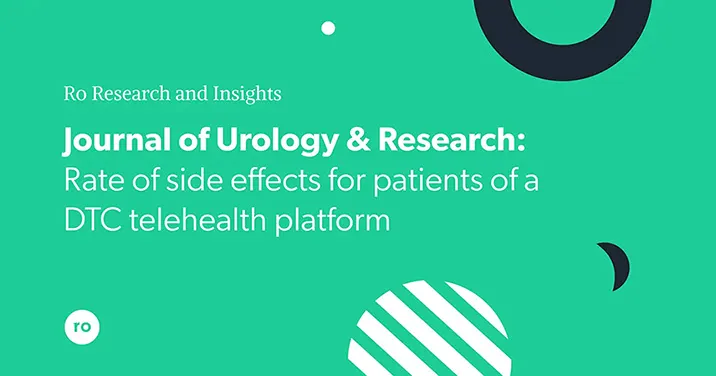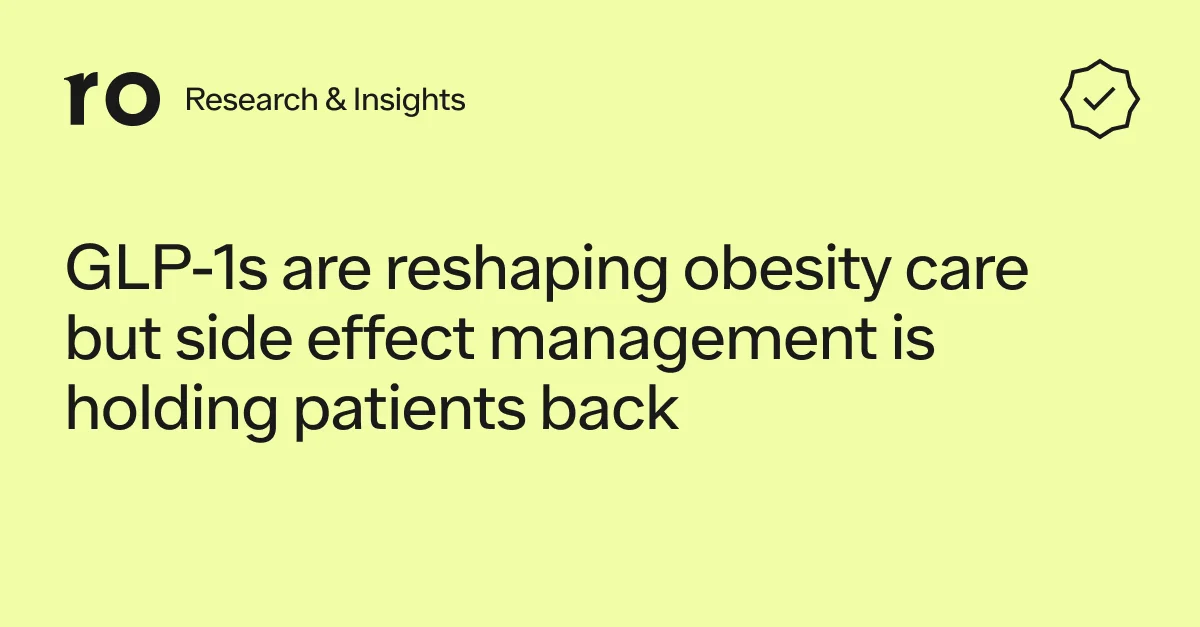
Fueled by the convenience of telehealth and a need for an alternative to in-person visits during the COVID-19 pandemic, many patients are now taking a virtual approach to their healthcare. In fact, some anticipate that by 2025, that 50% of outpatient care will be done online. One of those virtual options is direct-to-consumer (DTC) or direct-to-patient telehealth, which many times offers patients a more accessible, affordable care option. Given its proliferation, the medical community has begun to evaluate the standards of care and safety of DTC telehealth as it becomes a crucial delivery platform for essential healthcare.
In a study published in the Journal of Urology & Research, Ro’s Research Team, including Dr. Meylnda Barnes, MD, SVP of Medical Affairs and Research at Ro, and Dr. Michael Eisenberg, Associate Professor of Urology at Stanford University and Medical Advisor at Ro, and me, evaluated one potential indicator of patient safety: unprompted reports of medication side effects by patients.
The study, which looks at data from 10,000 patients using Roman, Ro’s digital health clinic for men, for the treatment of erectile dysfunction (ED), shows that Ro patients report much lower rates of side effects when receiving ED treatment via telehealth than in clinical trials where trial participants are prompted to report any side effects, but the study also found that:
Ro patients experienced the same types and distribution of side effects as reported in published research;
Ro patients discontinued use of the medications at rates in alignment with published data in clinical trials;
More than 90% of Ro patients who reported side effects to a Ro-affiliated provider requested and received a change in dose or medication;
This suggests that treatment for ED on a DTC telehealth platform does not necessarily lead to unsafe, or even unexpected, numbers of experienced side-effects; and, 2) supports prompt and coordinated physician responses to requests for medication changes when intolerable levels of side effects do occur.
As more and more patients turn to DTC telehealth, peer-reviewed research assessing health, quality, and access outcomes is critical for transparency and accountability.
Please email me, Dr. Lauren Broffman, Ro’s Research Scientist, if you have questions or comments on this research or suggestions for future posts or insights. My email is [email protected].









